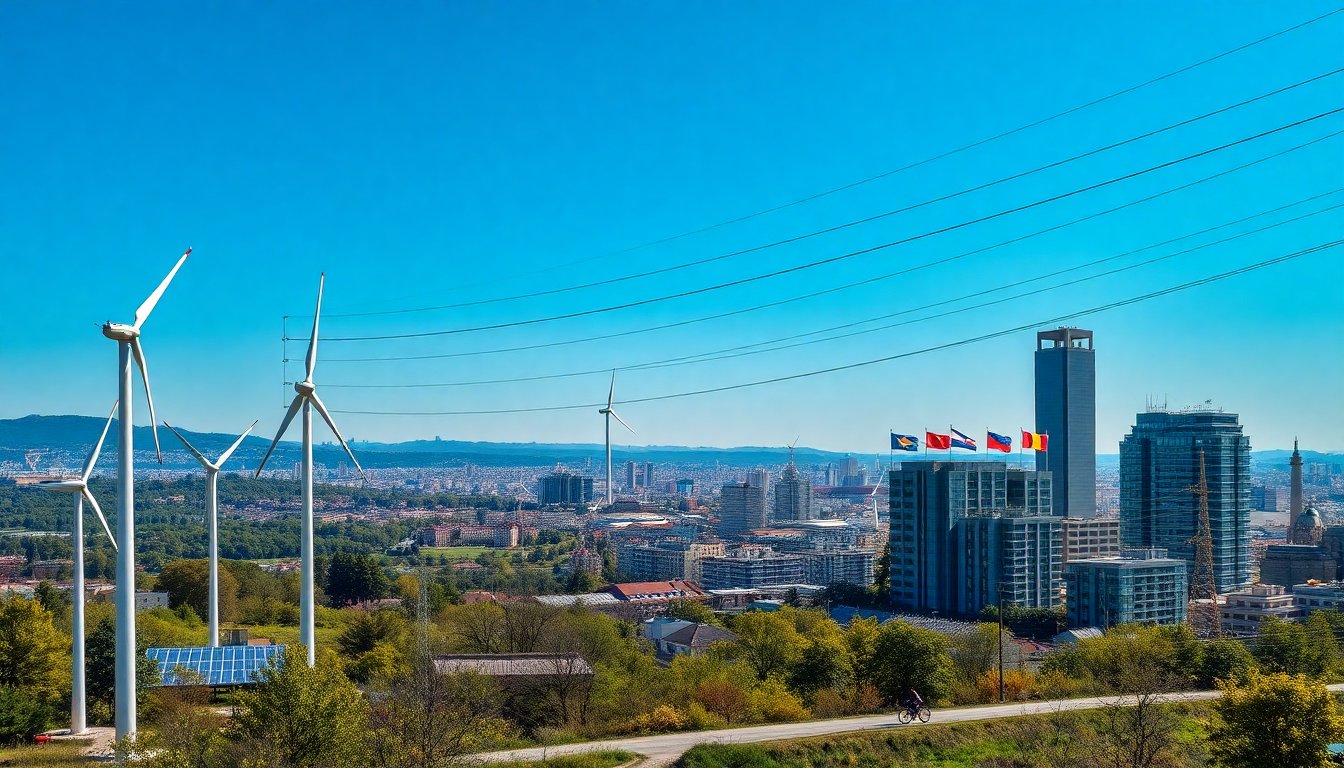Table of Contents
The world is witnessing a complex interplay between politics and energy resources as nations address their dependencies amidst ongoing geopolitical tensions. Recent developments show how countries like Hungary are leveraging their energy needs to influence foreign relations, with repercussions felt across Europe and beyond.
From the release of Jeffrey Epstein’s emails to significant energy deals, the narrative weaves personal ambitions with national interests. This article explores how these factors shape global dynamics and their implications for the involved countries.
Hungary’s unique position in energy politics
In a notable political maneuver, former President Donald Trump granted Hungary a one-year exemption from sanctions on its imports of Russian oil and gas. This decision received mixed reactions, considering the broader context of U.S. efforts to penalize countries engaging with Russian energy companies.
During a meeting at the White House, Trump recognized the logistical challenges faced by Hungary, a landlocked nation dependent on Russian energy. He expressed understanding of Prime Minister Viktor Orban’s situation, suggesting that the exemption was necessary for Hungary’s energy security. This exemption represents a significant political win for Orban, who has consistently defended Hungary’s energy ties with Russia, asserting that energy pipelines are essential for physical needs rather than political loyalty.
Geopolitical implications of energy dependencies
This exemption highlights the delicate balance of power in Europe, contrasting Hungary’s relationship with Russia against the broader EU stance on energy sanctions. Critics of Orban’s administration argue that his close ties with Moscow weaken collective European efforts to reduce Russian influence, particularly amid the ongoing conflict in Ukraine.
Orban’s administration emphasizes the importance of maintaining affordable energy supplies for the Hungarian population, a stance that resonates with many voters. As Hungary approaches elections, reliance on Russian energy serves as both a strategy to consolidate domestic support and a negotiating tool on the international stage.
Russia’s financial maneuvers amid sanctions
Simultaneously, Russia is adapting to significant economic pressures from international sanctions. The country plans to issue its first-ever yuan-denominated government bonds to address a projected budget deficit expected to reach approximately 5.7 trillion rubles (about $70.3 billion). This financial strategy illustrates Russia’s attempts to diversify its borrowing options and highlights the growing importance of the yuan within its financial framework.
Additionally, Russian oil giant Lukoil has encountered setbacks due to U.S. sanctions that have obstructed its planned sale of foreign assets. This situation raises concerns about a potential takeover by competitor Rosneft, reflecting the precarious nature of Russia’s energy sector amid ongoing geopolitical tensions.
The broader picture in Europe
The ramifications of these developments extend beyond Hungary and Russia. European leaders face unprecedented challenges, including increased drone activity that has triggered discussions about enhancing defense measures along NATO’s eastern borders. Countries are investing in advanced technologies to counter evolving threats, emphasizing the urgency of addressing security concerns amid rising tensions with Russia.
In this context, energy dynamics in Europe are becoming increasingly critical. Governments face pressure to secure energy supplies while navigating the complex landscape of international relations. The interplay of energy dependencies and geopolitical alliances will continue to shape the future of European politics and security.
Energy politics and foreign policy
From the release of Jeffrey Epstein’s emails to significant energy deals, the narrative weaves personal ambitions with national interests. This article explores how these factors shape global dynamics and their implications for the involved countries.0
From the release of Jeffrey Epstein’s emails to significant energy deals, the narrative weaves personal ambitions with national interests. This article explores how these factors shape global dynamics and their implications for the involved countries.1


